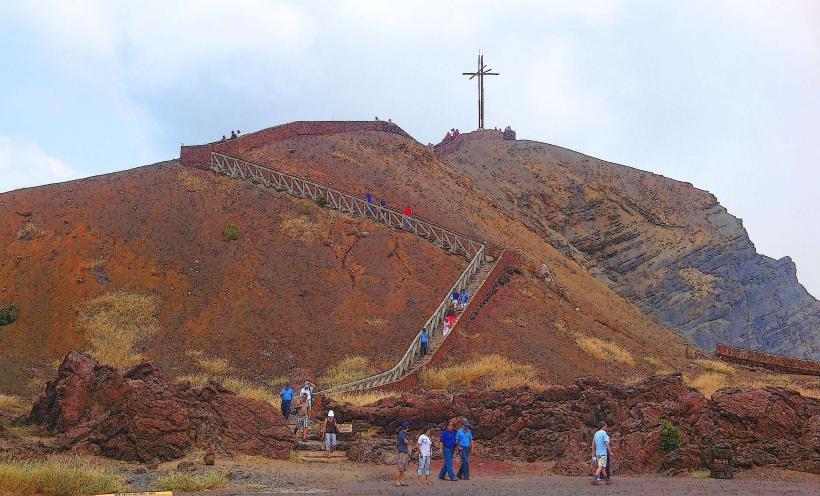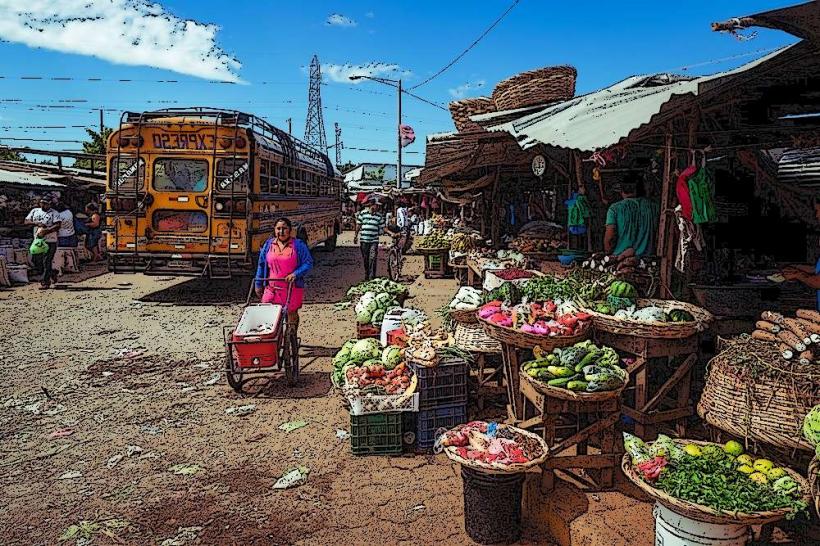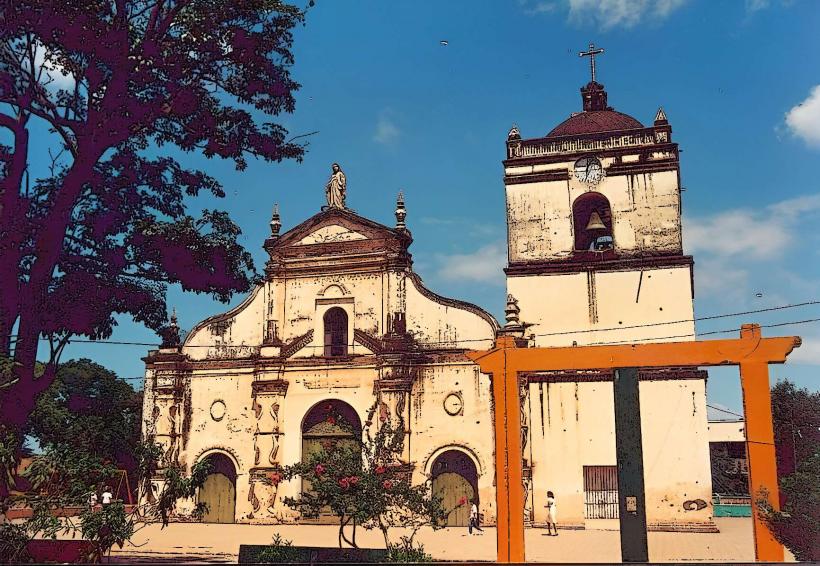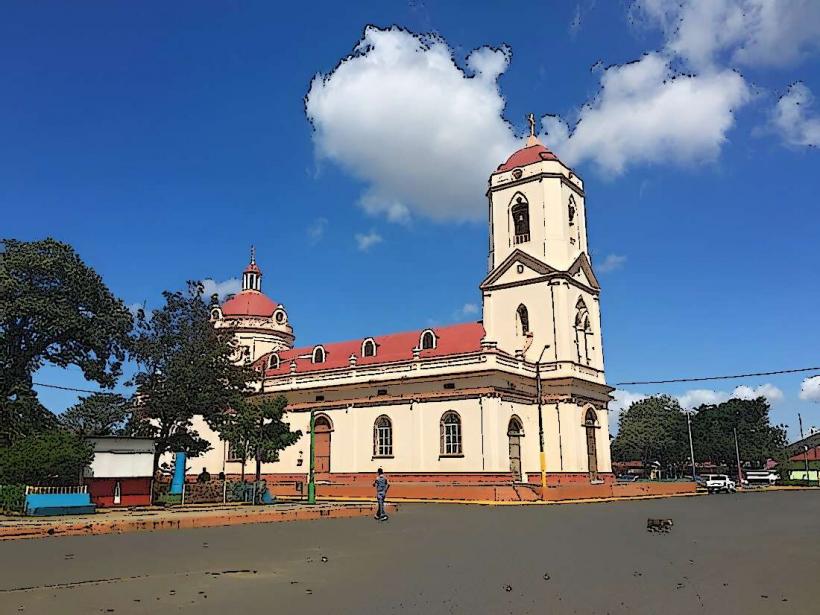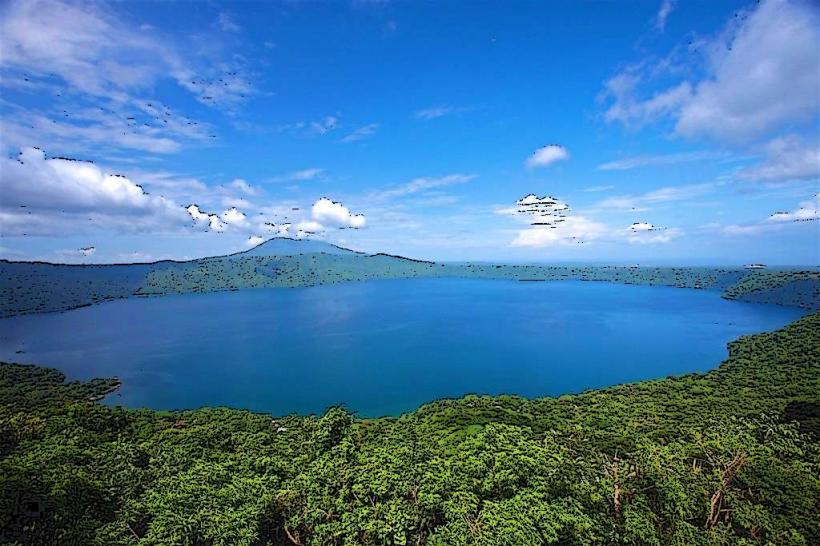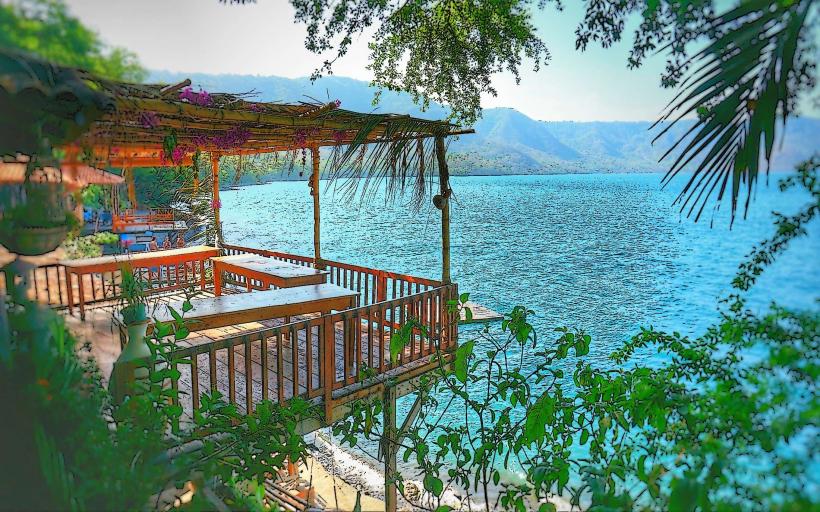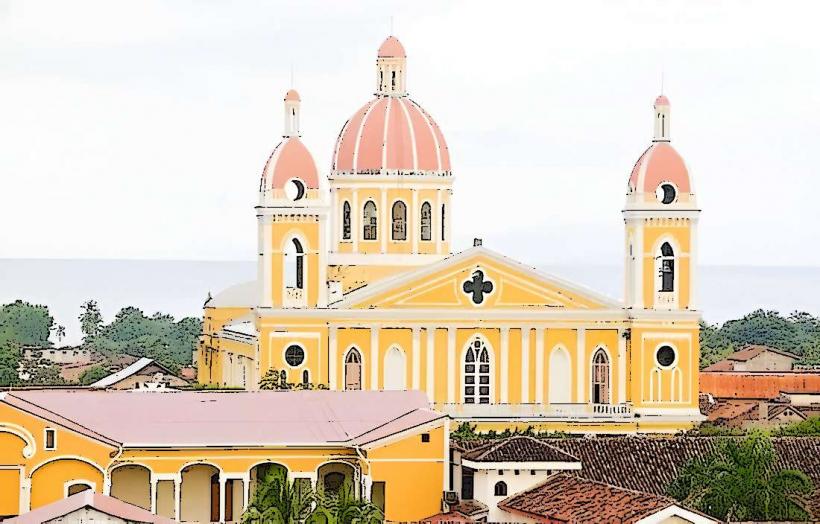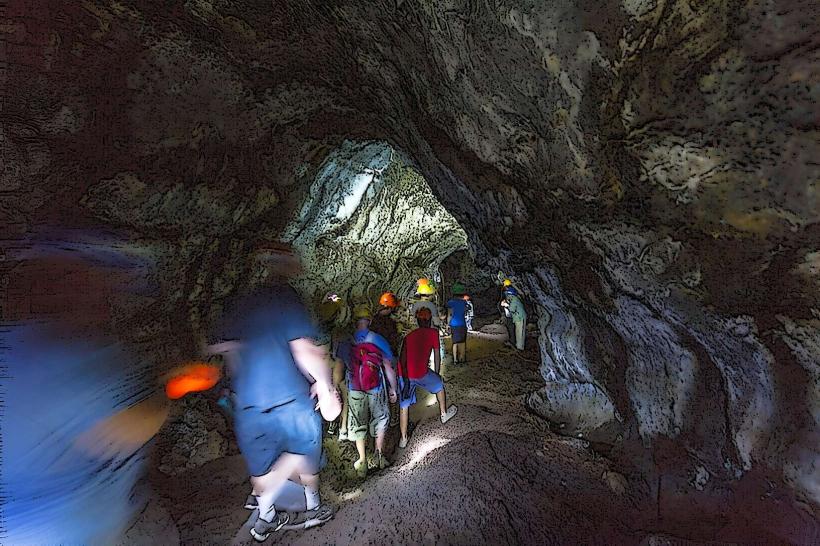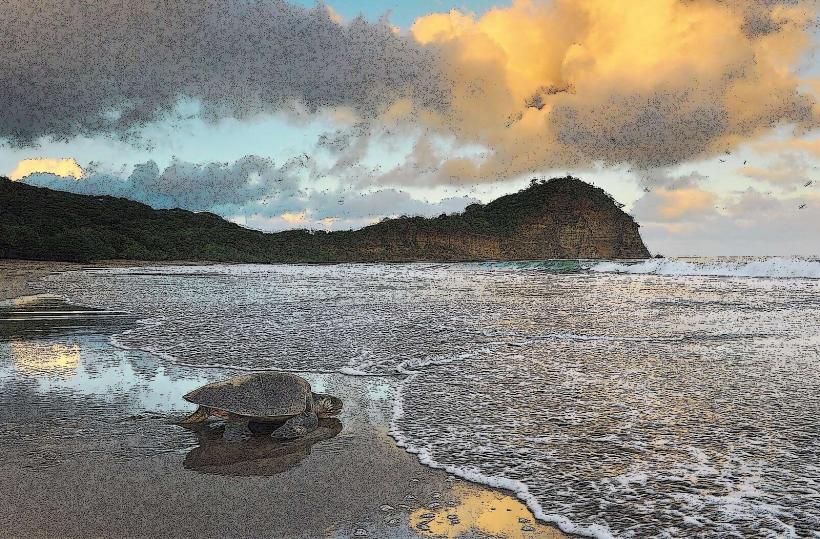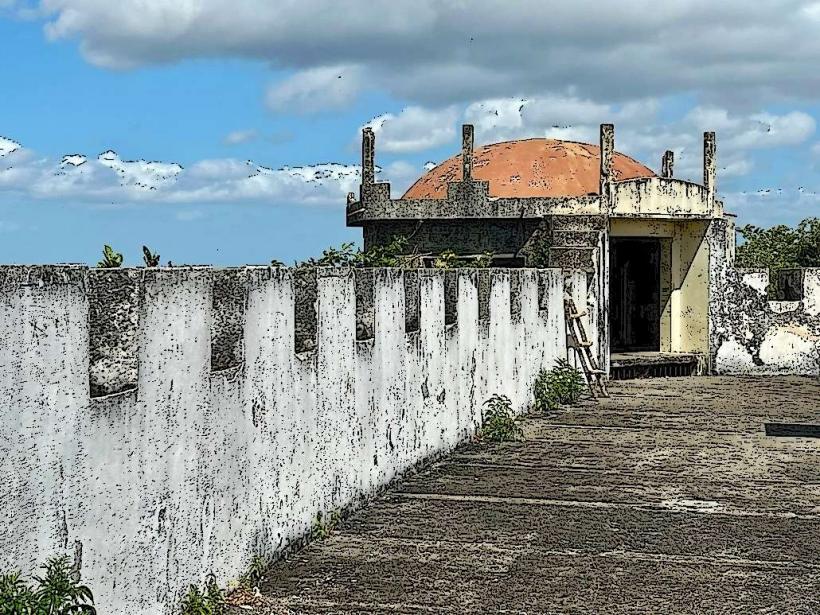Information
City: MasayaCountry: Nicaragua
Continent: North America
Masaya, Nicaragua, North America
Overview
As far as I can tell, Masaya, a lively city in Nicaragua, bursts with colorful markets, deep cultural roots, and sits just a short drive from the rumbling Masaya Volcano, as well as just 20 kilometers south of Managua, the capital, Masaya buzzes as one of the country’s main hubs for culture and trade, its markets radiant with woven hammocks and fresh mangoes.Masaya sits in western Nicaragua, about 20 kilometers-just 12 miles-southeast of Managua, where the air often carries the faint scent of volcanic ash, furthermore the city sits at the base of the Masaya Volcano, one of Nicaragua’s most active, where obscure slopes still smell faintly of sulfur after rain.It has a tropical climate, with heavy downpours from May to October and dry, sun-baked months from November to April, while temperatures usually sit between 25°C and 33°C (77°F to 91°F), so the air stays warm and heavy with humidity all year.Before the Spanish arrived, the Chorotega and other indigenous peoples called Masaya home, likewise famous for its vibrant culture and prime location, Masaya was founded by the Spanish in 1524 and quickly grew in importance thanks to the nearby smoking Masaya Volcano and the lush, fertile lands around it; over the centuries, it’s evolved into a bustling hub of trade, farming, and the arts.Wedged between Lake Cocibolca’s shimmering waters and the crashing waves of the Pacific, it was a prime hub for colonial trade, meanwhile like many Nicaraguan cities, Masaya later became a key player in the country’s revolution.In 1979, the city stood as a Sandinista stronghold, a key battleground in the revolution that toppled the Somoza dictatorship; today, its economy leans heavily on agriculture, with fields of coffee, sugar, and tobacco stretching toward the horizon, at the same time rich volcanic soil nourishes local industries, while Masaya draws visitors from near and far with its smoking volcano, winding colonial streets, and deep cultural roots.Masaya, known as the “City of Flowers,” draws visitors with its lively market stalls, bursts of radiant pottery, and the scent of fresh-woven hammocks, while its surrounding sights and skilled artisans make it one of Nicaragua’s top tourist destinations, consequently the market draws crowds eager to find authentic Nicaraguan crafts, from handwoven hammocks to painted pottery, moderately Truthfully, In Masaya, you can get around easily by hopping on a bus or flagging down a taxi, on top of that most people explore between Masaya and nearby cities, like Managua, by bus.Not surprisingly, Smooth asphalt roads link the city to the capital and the rest of the country, not only that the main highway linking Managua and Masaya is smooth and busy, with trucks rumbling past and buses full of locals and tourists alike.Masaya doesn’t have its own international airport, but the nearest is Augusto C, just a short drive away, not only that sandino International Airport (MGA) sits in Managua, roughly a 30‑minute drive away.Masaya greets visitors with colorful markets, a lively arts scene, and a deep cultural heritage framed by stunning natural beauty, then Masaya Volcano National Park is home to one of Nicaragua’s best-known volcanoes, where you can stand near the rim and feel the heat rise from the crater.Masaya Volcano, its wide crater holding a shimmering lake, is one of the rare spots on Earth where you can stand close enough to feel the heat of an active volcanic rim, while the park has winding hiking trails and lookout spots where you can take in sweeping views of the volcano and the rugged hills around it.Just nearby, La Cueva de las Víboras-The Cave of the Snakes-draws geology buffs and wildlife lovers alike with its cool, shadowy depths, what’s more bats cling to the cave’s damp walls while snakes slip through the shadows, giving it a rare region in the region’s landscape.Just a short drive away, the Masaya Market buzzes with color and chatter, standing as one of the city’s key cultural landmarks, likewise the market bursts with vibrant Nicaraguan crafts, from cool ceramic pots to carved wooden masks, sparkling hammocks swaying in the breeze, and richly woven textiles.It’s a spot where you can soak up the taste of fresh-grilled plantains, hear lively marimba tunes, and dive into the local culture, in conjunction with at the Museo del Pueblo de Masaya, you’ll find exhibits that bring the history of the city and its neighboring towns to life.Somehow, You’ll find exhibits on the region’s indigenous peoples, its colonial past, and the Sandinista revolution-maps, worn tools, and faded photographs bring each era to life, as a result the museum sits inside a colonial-era building, its worn wooden doors adding to the sense of history.In the central plaza, San Jerónimo Church rises in pale stone, a graceful example of colonial architecture, subsequently for centuries, the church has stood at the heart of Masaya, a venue of worship and a witness to the city’s history.Just steps away, San Juan de Dios Park offers shady benches where you can linger, watch the afternoon pass, and soak in the hum of local life, meanwhile most evenings, the location hums with street vendors calling out prices, musicians strumming lively tunes, and families strolling past.Beyond its well-known artisan market, Masaya offers plenty of shops, cozy restaurants, and shaded cafés, at the same time in Masaya, you can savor traditional Nicaraguan favorites like gallo pinto-rice and beans steaming on the plate-nacatamales packed with savory meat, and creamy quesillo, along with fresh fish pulled from nearby Lake Cocibolca.The city also comes alive throughout the year with colorful cultural and religious festivals, furthermore among the best-known is the Fiesta de San Jerónimo, a September celebration filled with music and dazzling banners honoring the city’s patron saint.The festival bursts with parades, music, dancing, and colorful traditional performances, therefore at night, Masaya’s scene is quieter than Managua’s, but you can still slip into a tiny bar or open-air café to hear marimbas, watch folk dancers, and sip sweet Nicaraguan rum.The city also has several public and private schools that serve the community, likewise the city hosts a regional branch of the National Autonomous University of Nicaragua (UNAN), where students can study everything from engineering to literature.It also has several healthcare facilities, from busy public clinics to compact private offices with the scent of antiseptic in the air, as well as masaya’s clinics handle most everyday care just fine, though for complex treatments you might have to make the hour-long trip to Managua.Like much of Nicaragua, the city still struggles with poverty and deep gaps between rich and poor, after that tourism brings jobs and chances for some locals, yet many families in the villages outside the city still struggle to get by, a little Like much of Nicaragua, Masaya also wrestles with protecting its natural treasures, especially the smoking Masaya Volcano and the dense forests that wrap around it, besides tour that protects local culture and nature-like walking a forest trail without leaving a single wrapper behind.
Author: Tourist Landmarks
Date: 2025-10-29
Landmarks in masaya

